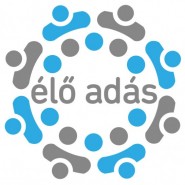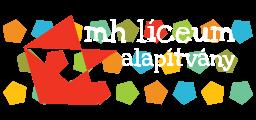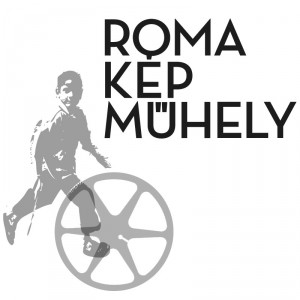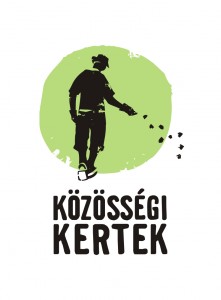
The Ferencváros Community Foundation cordially invites you to participate in an exciting experiment, taking place in Hungary, with the support of the internationally acclaimed The Funding Network, to develop local crowdfunding.
We look forward to welcoming you at the community donation event
“Live Giving” to be held at 18h on Wednesday, 2 December 2015.
The venue: Concerto Budapest (9th district, Páva u. 10.).
Participants will have the chance to learn about and support local initiatives, including the Roma Visual Lab (RomaKép Műhely), Contemporary Architecture Centre Community Gardens (KÉK Közösségi Kertek), Green Rooster Líceum and Mental Health Vocational High School (Zöld Kakas Líceum) – all of which are based in our district.
More info: [email protected]
 GREEN ROOSTER LÍCEUM AND MENTAL HEALTH VOCATIONAL HIGH SCHOOL (ZÖLD KAKAS LÍCEUM)
GREEN ROOSTER LÍCEUM AND MENTAL HEALTH VOCATIONAL HIGH SCHOOL (ZÖLD KAKAS LÍCEUM)
The programme targets young people over 14, who have been excluded from public education. They are youth with multiple problems and behavioural issues, who are often exceptionally bright but may be considered by some as impossible to educate
Their extraordinary skills go hand in hand with very intense motivations and driving forces. Driving forces which often cannot find a productive outlet, or only with great difficulty. We see these forces at work in, for example, extreme fashion, extreme sports, in party culture, the use of drugs, the founding of the majority of start-ups, in a multi-tasking mode of operation, or idiosyncratic approaches to time management, etc. These forces simply do not allow such people to build careers in the usual way. People with such extraordinary abilities and the accompanying driving forces represent an enormous and novel kind of labour market potential, while they drive their holders towards a very unique and autonomous way of life. We have been successfully working to help uncover and release these abilities and energies for over a decade. As the patterns of these drives and motivations is becoming clearer, we realise it is increasingly urgent to establish a supportive environment to channel such energies, abilities and drive in positive ways. We plan to implement it in the framework of an incubation programme.
GOAL OF THE INITIATIVE
The Green Rooster Incubation Programme targets so-called “troubled” youngsters over 14 years of age who have dropped out of school. Its goal is to develop an environment and activities for them, which
- draw on their unique abilities and drive,
- can lay the groundwork for a successful career after their graduation from high school.
ORGANISATION AND PROGRAMME BACKGROUND
The management of the Green Rooster Programme is carried out by the MH Líceum Foundation. The central institution of the Programme is the Green Rooster Líceum and Mental Health Vocational High School. We started our 19th school year on 1 September 2015. In addition to the school we are also running the following services:
- Green Rooster Youth Counselling Service,
- Five Principles School Cooperative,
- Green Rooster Líceum and Vocational Education Ltd.
Organisationally the Green Rooster Incubation Programme is implemented in the framework of the Five Principles School Cooperative.
WHAT PROBLEMS DOES THE INITIATIVE ADDRESS?
Our goals is to seek and find solutions to the following questions:
- how is it possible to convert the special abilities and driving forces of troubled youth, while
- also supporting their independence and their motivation to thrive
WHAT KIND OF SOLUTIONS DOES IT OFFER?
At present we have a number of students whose hobbies, whose “things”, pastimes, etc., could potentially be the basis of a successful incubation programme.
One of our students is working on setting up a bamboo plantation to produce innovative bamboo products. Another student of ours is at the top of extreme scootering nationwide and would like to get ahead in this field. We have a student who has a good chance of succeeding in motocross. Yet another student is very promising in free-style football, others demonstrate extra-sens perceptions, while some have extraordinary abilities when it comes to the visual domain, etc.. Our work with them is concentrated in what we call ÖkiLand, our socio-economic model game. In this framework we are able to experiment with different kinds of socio-economic environments which the young people simultaneously require and create with their special abilities and drive.
HOW WILL THE LIVE GIVING DONATION BE USED?
The organisational culture of the Green Rooster Líceum places the person in the centre. Every student involved in the Incubation Programme has an adult helper, a mentor. Mentors follow the students up to the start of their careers.
Donation from the Live Giving would be primarily used to finance two areas:
- to remunerate the mentors’ work – 200,000 HUF,
- to cover the costs of materials and equipment necessary for the programme – 150,000 Ft HUF.
HOW WILL YOU EVALUATE THE EFFECTIVENESS OF THE PROGRAMME?
We constantly evaluate students’ competence development – naturally, we pay particular attention to those that are related to their special abilities and motivations, as well as to their labour market skills. Their results are accredited in the Europass-conform competence certificate. The competence certificate is a defining element of their portfolio, which plays an important role as they enter the labour market.
ORGANISATIONAL DATA:
MH Líceum Foundation
Green Rooster Líceum and Mental Health Vocational High School
Five Principles School Cooperative
web: www.zoldkakas.hu
address: 11 Hurok utca, Budapest-1091
phone: 280 8114; +36 20 956 5628
e-mail: [email protected]
 ROMA VISUAL LAB (ROMAKÉP MŰHELY – RKM)
ROMA VISUAL LAB (ROMAKÉP MŰHELY – RKM)
RKM is an unusual learning and educational approach which has already been running for six years at DocuArt Cinema. Working as a film club of the Media Department of Eötvös Loránd University of Sciences (ELTE), seminars are based on the involvement and active participation of students. The Lab seeks to critically examine the appearance of the Roma in motion pictures or in any other kind of visual representations. Participants – together with the invited guests – analyse the visibility of Roma and carry out sensitisation towards general social issues. The Lab is not a registered organisation, its support is organised via the Palantir Foundation which hosts the programme and which is contracted with Ferencváros Community Foundation.
GOAL OF INITIATIVE
The goal of the film club is to help students acquire a point of view that differs from the mainstream. The organisers are striving to promote a kind of “cultural resistance” in making more and more people question and reject over simplifying, stigmatizing, and stereotypical images and representations of Roma, which we often see in the media.
WHAT PROBLEMS DOES THE INITIATIVE ADDRESS?
Although the film club is open, welcoming anyone who is interested, it has struggled to attract people beyond its immediate and natural audience, both locally and nationally. On the local level we have learnt that it is not enough to advertise programmes online, even if we use a variety of channels (DocuArt newsletter, Roma Visual Lab Facebook page, Roma Visual Lab website, student newsletters). It is also apparent that the greatest part of the Roma Visual Lab consists of university students, mostly attending the Media Department of ELTE. Lacking the capacity, up till now we have been unsuccessful in involving people from either the immediate local environment (district, Budapest) or in promoting the film club countrywide.
WHAT KIND OF SOLUTIONS DOES IT OFFER?
On both levels, i.e. the local and the national, effective dissemination of information may help the promotion of the Roma Visual Lab and the awareness and knowledge it generates. Printed programmes and leaflets distributed in the most appropriate spots (e.g. cultural institutions) are more effective in reaching an audience that may potentially be interested in the programme. The workshop, in turn, allows the training of interested trainers, the dissemination of the RKM method as a model in higher education network and in colleges for advanced studies.
HOW WILL THE LIVE GIVING DONATION BE USED?
The primary goals would be to prepare and disseminate a printed programme leaflet (RKM programme 2016 – editing, typesetting, printing) and to organise a workshop. The workshop would involve sharing the knowledge generated in the course of RMK, with special regard to higher education institutions where there are Roma students – here we rely greatly on the network of Roma colleges for advanced studies. (RKM workshop, travels, accommodation, other related expenses, room rental, royalty of films to be screened, video recording and editing, some provisions).
HOW WILL YOU EVALUATE THE EFFECTIVENESS OF THE IMPLEMENTED PROGRAMME?
Effectiveness can be measured in the case of the programme leaflet and the workshop as well. As to the former, it can be evaluated by asking the visitors of the Roma Visual Lab to report on how they heard about the programme. Hopefully more people and a more diverse audience will show up after the distribution of the programme leaflet. The effectiveness of the workshop can be measured, in the first instance, by analysing the video recording of the workshop, and later by assessing and observing the adaptation of the RKM model in other locations.
ORGANISATIONAL DATA
Roma Visual Lab
The Roma visual Lab is a course offered by the Media and Communication Department of Eötvös Loránd University of Sciences: 6-8 Múzeum krt, Budapest 1088.
The course itself and the film programme take place at DocuArt Cinema on each spring semester: 15 Erkel street, Budapest 1088
Programme organisers:
András Müllner
0036/70/5189395
Andrea Pócsik
0036/30/5981415
 CONTEMPORARY ARCHITECTURE CENTRE (KORTÁRS ÉPÍTÉSZETI KÖZPONT – KÉK)
CONTEMPORARY ARCHITECTURE CENTRE (KORTÁRS ÉPÍTÉSZETI KÖZPONT – KÉK)
The Contemporary Architecture Centre aims to address relevant questions and answers related to architecture, urban planning and environmental design. In the framework of the “Garden Edge” (Kerthatár) Community Garden Programme we are planning to accommodate and adopt, on a pilot basis, innovative, sustainable and urban environmental methods. As a first step we will fundraise for installing composting toilets, then for facilities to use biofuel.
GOAL OF THE INITIATIVE
The areas of the “Garden Edge” Community Garden, located in the 9th district, totals 2600 sqm, of which 1000 sqm are used for agriculture. There are 90 small parcels of land (allotments), directly involving approximately 200-250 people. Forty per cent of the gardeners are from the district. In the remaining area we are planning to pilot environmental conscious and innovative solutions (e.g. a composting toilet, generating electricity from compost methane, mobile sun-protection systems).
WHAT PROBLEMS DOES THE INITIATIVE ADDRESS?
Every object in the Community Garden, designed to serve the community within community spaces (garden, amphitheatre, public space, community furniture, etc.), will be realised with the involvement of experts and in cooperation with the garden community. We consider it a challenge to be able to provide basic services in the environment that we build, like the Community Garden, which ensure civilized and hygienic, at the same time as eco-conscious solutions, in a space used by many people.
WHAT KIND OF SOLUTIONS DOES IT OFFER?
The resource efficient composting toilets, for which we are fundraising tonight, would serve the needs of the users of the area – the gardeners, as well as guests (school groups, visitors to the events, etc.). Furthermore it would help us facilitate the introduction and dissemination of this environmental friendly concept.
HOW WILL THE LIVE GIVING DONATION BE USED?
What we would like to create and adopt in Ferencváros are sustainable and energy saving urban systems and experimental models that primarily use renewable energy. We are planning to use the donation to create a public space and a composting toilet.
HOW WILL YOU EVALUATE THE EFFECTIVENESS OF THE IMPLEMENTED PROGRAMME?
We have no knowledge of the use of a composting toilet other than the ones that are temporarily used at festivals or those operated by Humusz Alliance on an experimental basis; beside the Eco-Valley we do not, however, know of a facility with general public access at a permanent location. The use of the facilities will be the proof of its “effectiveness”. To be more specific in terms of the numbers, we would like to set up 2-3 toilets. Furthermore, the planned information programmes, as well as implementation in additional locations, would be an indication of its effectiveness.
ORGANISATIONAL DATA:
Contemporary Architecture Centre Foundation (Kortárs Építészeti Központ Alapítvány)
Address: 11 Hársfa utca, Budapest 1074
Office: 24 Lónyay u., Budapest 1093
Tax registration number: 18189223-1-42
Registration number: 9837 (Pk. 60103/2006)
Representative: Bálint Kádár, president
Organisational status: public benefit organisation
KÉK web: http://kek.org.hu/
KÉK Fb: https://www.facebook.com/KortarsEpiteszetiKozpont
Community Gardens web: http://kozossegikertek.hu/rolunk/mi-ez/
Community Gardens Facebook: https://www.facebook.com/KozossegiKertek
HUNGARIAN CONTEMPORARY ARCHITECTURE CENTRE (KORTÁRS ÉPÍTÉSZETI KÖZPONT – KÉK)
+36 20 911 2720
www.kozossegikertek.hu
www.kek.org.hu

